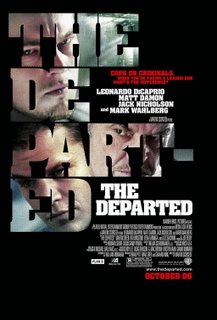or
"Jesus Is __________"The first thing I ever saw Vera Farmiga in was The Departed in "the girlfriend" role, and I was none too impressed. Then, came Up in the Air and her wistful performance as a "fellow traveler" who hooks up with George Clooney—two "stop-overs" that pass in the night—and it was an amazing performance.
Now, with her first film as director, Higher Ground, she stakes out indie territory as something of a maverick. It's a film about religion without hysterics, without condescension, without judgement, without prejudice...which is a far cry from the scripture Hollywood habitually reads from. Higher Ground tells the story of Corinne (Farmiga, and played at younger ages by her sister Taissa and McKenzie Turner), daughter of divorced parents (Donna Murphy and John Hawkes), who answers the call of her minister (Bill Irwin) to accept Jesus into her life ("He's knocking at your door...") but finds herself standing at the threshold, believing but not wholly accepting, finding herself, as a woman, relegated to a role "submitting" to her husband and the male hierarchy of her church, seeing her best friend, the earthy Annika (Dagmara Dominczyk) finding her own personal way in Life and Faith and coveting it (When Annika effortlessly speaks in tongues—an act frowned upon by her church—Corinne blurts out "I want that!" but never manages it-in fact, one of the best scenes is Corinne, alone in the bathroom, exorting Jesus to speak through her, and finally schlumping out in frustration).
What makes her study of a woman struggling with Faith (with a capital "F") within a strict Christian community (albeit of somewhat counter-cultural "flower"-children) different is that it never wavers from the precept that religion is good. People are flawed, yes, as her believers are, but faith is a nurturing, fulfilling way of Life that sustains and helps throughout our trials. This is a far cry from the way faith is usually portrayed these days, where the Believer is at least a hypocrite and at worst, some kind of predator. One could argue the point, but Higher Ground revealed to me some of the conditioning such repetition has achieved over the years in me, an agnostic. Here, one expectantly waits for any hint of a gouge in the old wooden cross, where any of the characters is guilty of anything, but sanctimony—the most intense that fear occurs is at a talk with an in-faith marriage counselor who insists on seeing Corrine alone without her husband (Joshua Leonard), which makes one wonder if he's going to fulfill the role of "the creepy one," but, no, all he wants to do is good, offering sage advice more for her faith than for her marriage.
Not that there aren't others who fulfill those roles, and, Lord have mercy, if it isn't the non-believers who turn out to be the hypocrites and suspicious ones (exemplified by a welcoming neighbor who stops by to warn Corinne and her visiting Mother of "religious nuts" who might live nearby, while the woman of faith keeps her counsel, instead stuffing her face on a gift of offered doughnuts that might have a bit of a bitter quality to them), and the Irish mailman on her block who takes such an interest doesn't turn out to be all that's delivered. The points are not written with judgmental heaviness or pulpit-pounding, but are merely observations of a perpetual outsider looking in.
As someone who has struggled with religion all his adult life, I found refreshing the simple expression that faith can lend grace to one's life, without hammering the point home as many of the "message" movies have a tendency to do. And that the film chooses to portray Corinne's struggle as difficult, even heart-rending, and faith being anything but easy, only makes the faith of those not embroiled in such a battle seem stronger by comparison. I admire that so much. If there are any complaints to be made, it is that sometimes the film veers into Corinne-fantasy mode for easy laughs, or too-easy satire. The film doesn't require or it or need it, and director Farmiga should have had more faith in the simple power of her film to stay clear of it.
Can't wait to see what she does next.
2022 Update: Still waiting....













































